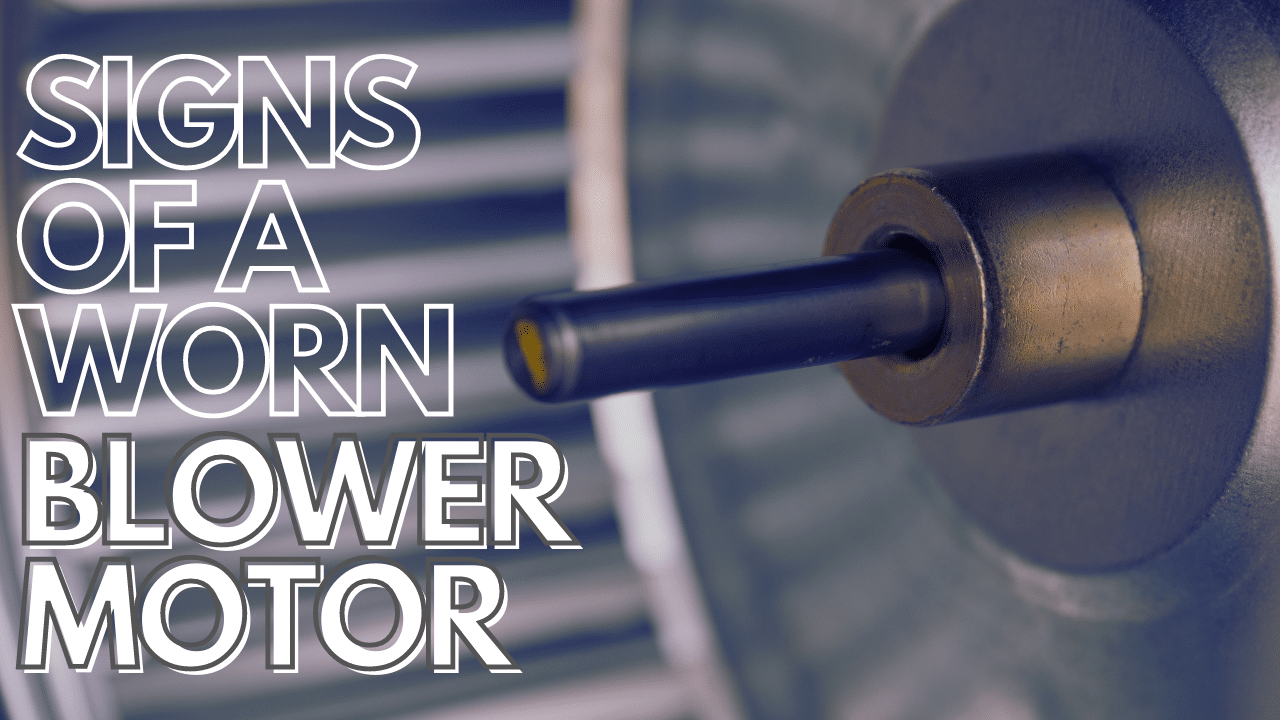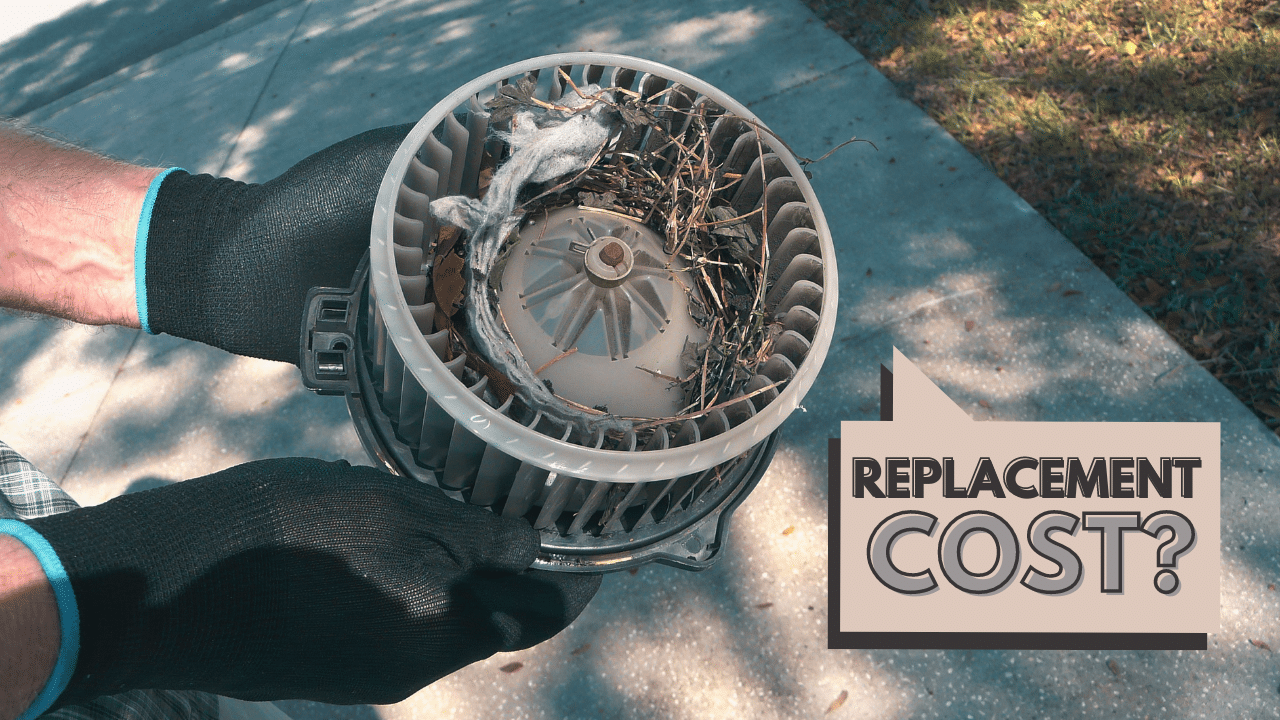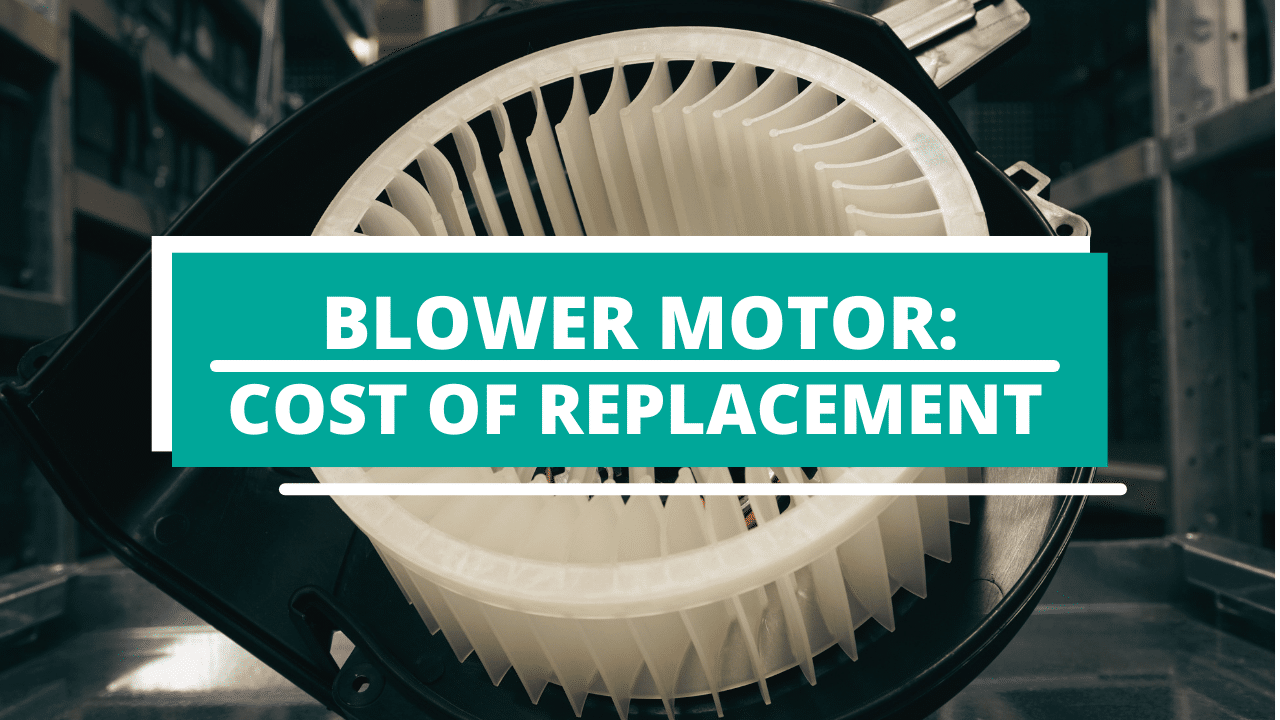When the summer’s heat is at its worst, the last thing you want is a faulty air conditioner that can’t move cool air throughout your home. The same is true in the winter. Regardless of the season, you want a steady stream of air that is the correct temperature. And if your HVAC system is not doing that, you may need a new blower motor.
But what is the replacement cost of a blower motor? And how do you know if you need to replace it in the first place?
In this guide, we will share the answers to these questions, so you can make the best decision when talking with your service technician.
What is a Blower Motor?
In your HVAC system, the blower motor is the part that, as its name suggests, blows the temperature-controlled air throughout the ducts in your central air system. Whether this is cool air in the summer or warm air in the winter, the blower motor is a crucial part of your system.
To put it simply, the thermostat signals your furnace or air conditioner to get to work changing the temperature of the air. Once the air is the correct temperature, the blower motor works to move that air throughout the duct work of the house.
When it stops working properly, air stops moving properly.

How do I know if the Blower Motor needs to be Replaced?
Below are some common signs of a worn blower motor:
Persistent Burning Smell from Vents
This is the most alarming sign that your blower motor is worn out and needs to be replaced. While dust can gather on a furnace during the warmer months and cause a burning smell when you turn the furnace on for the first time in the Autumn, that isn’t what we’re talking about here. The scent of “burning a year’s worth of dust” usually dissipates within a few minutes, and the furnace continues to operate without any issues.
What we mean here is a burning smell that does not stop, or a burning smell that happens right before the system shuts down. The former usually happens when the blower motor is overheating and not functioning well, and the latter happens when the overheating causes the blower motor to turn itself off as a safety mechanism.
This isn’t limited to the cooler months, either. If you’re running the air conditioning and you notice a burning smell coming from your vents, your blower motor may be overheating.
Regardless of the season, an overheating blower motor almost always needs to be replaced.
Poor Airflow
If your HVAC system has poor air flow, or if there is no air flow at all, that can be a sign of a worn out blower motor. There may be other issues at play as well, such as air ducts being blocked with debris, a filter could be clogged, or you may have a thermostat or relay issue.
While lack of proper air flow in your central air system can be caused by a lot of different problems, don’t be surprised if your service technician discovers the motor blower to be the source.
Unusual High Energy Bills
While your HVAC system can account for a large percentage of your energy bill, if you notice a sudden spike in your power bill compared to the same time last year, you may have a faulty blower motor.
The blower motor uses more energy than any other part of your central air system, so if its energy efficiency takes a nosedive, your power usage will often drastically increase.
System Shutdowns
As we mentioned above, if the blower motor is overheating, your HVAC system may shut down before it has moved the temperature-regulated air throughout your home. This can occur with or without a burning smell.
This issue could be because of the blower motor, but, again, it can also be because of an electrical issue, like a faulty relay or thermostat, so make sure your technician takes time to discover the actual source of the problem if this is your main issue.
Odd Noises
If your HVAC system is making sounds other than the expected whooshing of comfortable air and the motor gently kicking on, your blower motor may be malfunctioning. This is especially true if you hear a buzzing, rattling, squealing, or clanking sound.
Certain sounds may not mean you need to replace the entire blower motor, but in many cases, it’s better to replace the entire thing if one part has worn out, as the other parts may not be too far behind.
Factors Affecting the Replacement Cost of Blower Motor
A little more complicated than it might seem, but we will break down all the major factors that go into the cost to replace a blower motor.
Labor
The cost to replace the part depends on how long it takes your technician to replace the blower motor and service your HVAC system, as well as the time it takes to diagnose the problem. And of course, it depends on your contractor’s hourly rates.
Service technicians generally charge between $90-$200 an hour. This rate depends on a variety of factors, including the cost of living in the area and the various professional fees your technician and their company have to pay, as well as your technician’s experience level.
Some people opt to install a new blower motor themselves, but this is generally not advised for homeowners who are not, themselves, HVAC professionals.
For one, a service technician has experience in doing precisely this kind of work, so they will be able to get the job done faster. Their experience will also help them see if the entire blower motor needs to be replaced, or if just one part needs to be replaced (such as the belt). They will also be able to make sure the new equipment is installed correctly.
Finally, they will be able to see if the problem was caused by an old, worn out blower motor, or if something else in your system caused the blower motor to fail. It’s not that uncommon for this to be the case if the cause of the failure was excess dust and dirt coming through a leak in the duct work. In this instance, another hour or two of labor can often prevent you from having to replace the blower motor again in a year or two.
Usually, replacing a blower motor requires between 1½-3 hours of labor, depending on the complexity of your HVAC system. This translates to a cost of anywhere from $135 to $600 in labor.
Replacement Parts
Sometimes, your entire blower motor might not need to be replaced, especially if it’s fairly new. In this case, your contractor may recommend that you replace only the part that is faulty. This could be something as inexpensive as a belt, which can cost as little as $7, to the capacitor, which can cost over $500. (Related: How Long Should Should Your Home's AC Capacitor Last And Why Does It Cost So Much To Replace?)
When it comes to the more expensive parts, many homeowners opt to replace the entire blower motor, but that may not be necessary. It is often recommended that homeowners ask their service technician about finding the root cause of the problem (such as duct work or electrical failures).
Type of Blower Motor
A few different factors can make a blower motor cost more or less.
First, there’s the question of how big of a blower motor you’re replacing. Blower motors are sized by horsepower, so the higher horsepower blower motors will be more expensive to replace. So the base price of the replacement will be between $150-$800 for a small, one-quarter horsepower unit, to $375-$3000 for a larger, one horsepower unit.
Then, there are the speed settings to account for:
Sadly, you are probably stuck with whatever type of blower motor you’re replacing, simply because that’s what your system was designed for. But talk with your service technician to see what your options are.
Is your HVAC System Under Warranty?
If your motor blower needs to be replaced, you might only need to pay for the labor if your HVAC system is still under warranty.

Replacement Cost of a Blower Motor
Depending on all the factors listed above, replacing a blower motor can cost as little as $150 for labor if you’re covered by a warranty, or as much as $3600 on the high end of both the replacement blower motor and the cost of labor to install it.
Most replacements fall somewhere in the middle: between $450-$1200.

